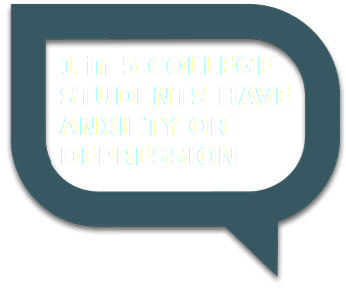Psychoeducational Assessment
WHAT IS A PSYCHOEDUCATIONAL ASSESSMENT?
TYPES OF TESTS PERFORMED
Intellectual Tests: These tests are often thought of as mini cognitive “games.” Some ask questions about verbal knowledge, and some are designed to assess non-verbal reasoning (e.g. visual-spatial skill and pattern matching skills). These tasks also determine how well a child can maintain focus, and whether they are an auditory or visual learner. Finally, a person’s performance on these tasks can help diagnose the presence of clinical conditions like ADHD.
Academic Tests: These tests determine a child’s fundamental skill level, fluency, and applied skills in areas of reading, math, and written language. By looking at a student’s academic skill level compared to a sample of same-aged students, we can determine the presence of learning deficits and how other factors, such as one’s attention and mood, affect academic performance.
Emotional Tests: Attending school is inherently stressful, especially for kids with attention and learning issues. Often, these intensely stressful periods can cause debilitating anxieties or awaken predispositions to depression. Hence, our emotional measures can determine the presence of negative emotional states that may be affecting your child’s cognitive and academic functioning.
Personality Tests: One’s general attitudes about life, such as their personal expectations for success, can positively motivate a person or, alternately, create fears of failure that may become detrimental to performance. Fortunately, our assessment battery subtypes personality style and can help us determine attitudes that are either helping or hindering success.
WHAT TO EXPECT
Typically, the above “battery” can take anywhere from 4 to 6 hours to administer. The test process begins with a clinical interview that takes approximately an hour (commonly, for kids, two interviews are conducted, one with parents and another interview with the child undergoing testing). In a matter of days after this initial interview, testing will occur with a psychometrician trained in the administration and scoring of psychoeducational tests. After testing is complete, your psychologist will analyze and interpret the test data and you will be provided feedback (either verbally or in written format).
Please note: You should always seek psychological testing from a qualified licensed psychologist with experience in testing and assessment. “Qualified” means a doctoral trained psychologist who has taken PhD level classes in cognitive, academic, emotion, and personality assessment. Further, in addition to doctoral classes, these psychologists have received years of supervision in the administration, scoring, and interpretation of test data, and have often completed one or more year-long internships and residencies at which they have had extensive assessment training. The process of becoming a well-trained assessment psychologist can take 10 to 15 years. Once they are suitably trained, psychologists can use assessments to diagnose clinical problems and formulate effective treatment plans that include recommendations for medication, psychotherapy, academic planning, testing accommodations, and college disability accommodations. Typical diagnoses made by psychologists are ADHD, Specific Learning Disorders in reading/math/and written language, and emotional conditions such as anxiety and depression.
If you are wondering if your child has an attention, learning, or emotional issue that could be affecting their academic performance, we strongly recommend a psychoeducational test battery by a qualified licensed psychologist. If you decide to pursue an assessment, even if it is not with Dr. Gibbs, please do so with a qualified licensed psychologist.
EVERY SERVICE WE PROVIDE STARTS WITH A PSYCHOEDUCATIONAL ASSESSMENT BATTERY
WE CAN HELP

